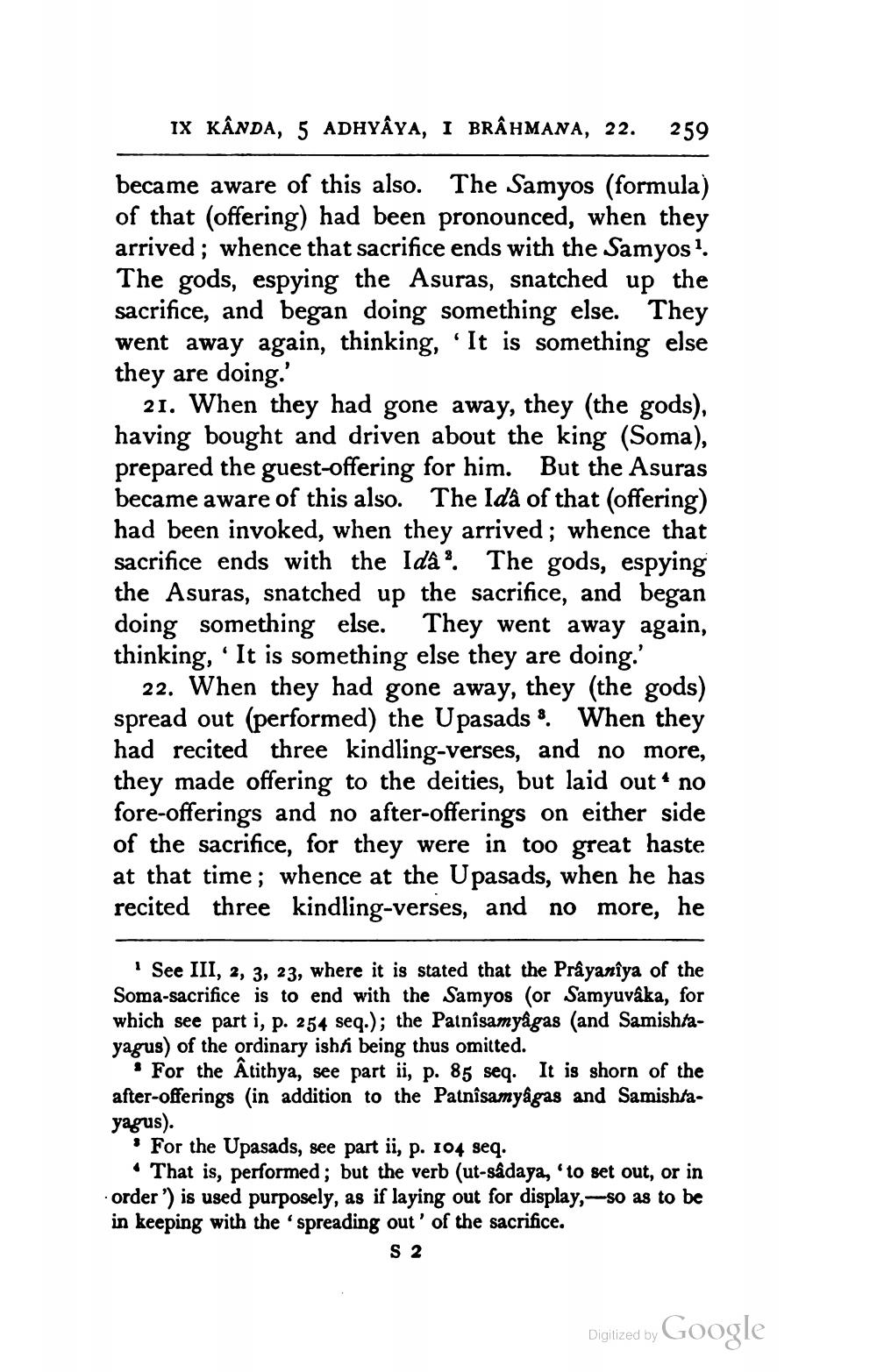________________
IX KÂNDA, 5 ADHYAYA, I BRAHMANA, 22. 259
became aware of this also. The Samyos (formula) of that (offering) had been pronounced, when they arrived; whence that sacrifice ends with the Samyos1. The gods, espying the Asuras, snatched up the sacrifice, and began doing something else. They went away again, thinking, 'It is something else they are doing.'
21. When they had gone away, they (the gods), having bought and driven about the king (Soma), prepared the guest-offering for him. But the Asuras became aware of this also. The Idâ of that (offering) had been invoked, when they arrived; whence that sacrifice ends with the Ida. The gods, espying the Asuras, snatched up the sacrifice, and began doing something else. They went away again, thinking, 'It is something else they are doing.'
22. When they had gone away, they (the gods) spread out (performed) the Upasads. When they had recited three kindling-verses, and no more, they made offering to the deities, but laid out* no fore-offerings and no after-offerings on either side of the sacrifice, for they were in too great haste at that time; whence at the Upasads, when he has recited three kindling-verses, and no more, he
1 See III, 2, 3, 23, where it is stated that the Prâyanîya of the Soma-sacrifice is to end with the Samyos (or Samyuvâka, for which see part i, p. 254 seq.); the Patnîsamyâgas (and Samishtayagus) of the ordinary ishti being thus omitted.
For the Âtithya, see part ii, p. 85 seq. It is shorn of the after-offerings (in addition to the Patnîsamyâgas and Samishtayagus).
For the Upasads, see part ii, p. 104 seq.
That is, performed; but the verb (ut-sâdaya, 'to set out, or in order') is used purposely, as if laying out for display,-so as to be in keeping with the 'spreading out' of the sacrifice.
S 2
Digitized by
Google




